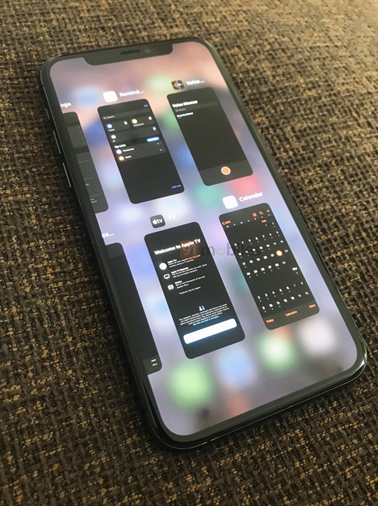source:Sina Technology Comprehensive
As the WWDC conference in June gets closer and closer, the latest news about the iOS system will appear before every third.
We have seen various upcoming new features in the leaked code from the beta. For example, recently, an API interface called Clips has attracted everyone's attention.
This functional interface for developers will allow users to directly try the application without downloading the application, which can facilitate users to quickly operate in many occasions and reduce download time and traffic. For example, when you scan a QR code and point to a taxi application, Clips allows you to directly hit the taxi without downloading the full app.

Sound familiar? In fact, the Slices function appeared in the official version of the Android P system last year. It allows users to experience some of their functions without downloading after searching for related apps, and Apple ’s Clips is like this feature, although waiting for iOS 14 There may be more surprises when it is officially launched, but I do n’t know if you have found that now iOS system functions are getting closer and closer to Android, often after many familiar functions appear on Android, iOS will bring similar functions afterwards. , Is this good or bad for users? Today we might as well come chat together.
Those new features of iOS "imitation"
Earlier, we introduced some new features that may appear in iOS 14, and some of them may seem familiar to you. For example, in addition to adding new wallpapers, iOS 14 will directly open a third-party wallpaper interface to facilitate the integration of more wallpapers In iOS settings.

This feature has been implemented on Android for a long time. Compared to the tedious iOS, you need to download the wallpaper yourself and set it yourself. The domestic Android custom system can easily download and customize massive wallpapers from the system settings, and even Automatically updated regularly.
Another example is that Apple used to be very "closed", and it does not allow users to set third-party applications as default applications. This will also release restrictions in iOS 14. Before this, some developers found that Apple began allowing users to set HomePod to access competitors such as Spotify .
This is actually already possible on Android phones. Many Android users will use various third-party browsers, app stores, etc. as their default apps instead of using the official apps.

In addition, based on Apple's multi-device cross-platform collaboration, iOS 14's background switching application interface will also change, adopting a similar look to the iPad OS, these functions seem to be more and more like Android. All kinds of new features make people wonder, has iOS lost innovation? The answer may not be so.
Getting closer and closer, more and more like
Apple ’s closedness is notorious. In the early days of iOS, users could do little expansion. Old users may still remember that when they wanted to use the Jiugongge input method, they had to pass the "jailbreak" to achieve it. It ’s possible that Jobs turned it into a beautiful and charming garden, but you only have the opportunity to browse and appreciate it, but you do n’t have the right to transform it, but the stability, security, and human characteristics make this closed system still good. use.

However, on the side of the Android Alliance, manufacturers have exerted collective wisdom and contributed unique features. After undergoing early imitation, the open source Android system quickly added a variety of new functions to meet User expectations, such as the Jiugongge speed dial function, call interception, personalized themes, etc., are not available on iOS, but soon spread to all manufacturers with the Android system update, although its security and stability There is still a gap between iOS, but the distance between the two is gradually narrowing, and even in some aspects, Android is more affected by iOS.

For example, in the past two years, with the popularity of full-screen design, gesture operations on mobile phones have gradually become mainstream. Apple began using gesture operations on the iPhone X in 2017, including sliding up to the main interface, sliding up and hovering multi-tasking, The functions such as sliding back on the left are all borrowed and popularized by the Android system. Another example is Apple's Wi-Fi password sharing function. After users log in to Wi-Fi, they can directly share their login credentials to nearby friends or guests without having to dictate the password again. This feature has also been introduced on the Android 10 system.
There are many similar examples. It can be seen that when the mobile operating system enters the top two competitions, Android continues to learn from iOS while iOS is learning Android. iOS has not lost innovation, but the gap with Android is gradually narrowing, because in today ’s era where almost everyone has a smartphone, any transformative innovation is not easy, only continuous improvement in more small functions It may make a bigger breakthrough, iOS has never been the most comprehensive, but for consumers, now its functions are more and more open, and it is also trying to absorb more useful functions into its own features, and this feature is in The value created on the iPhone is getting bigger and bigger.
Post time: May-06-2020
